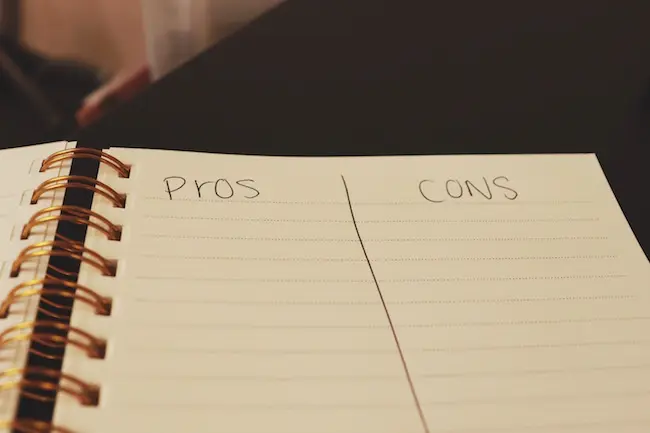Squatters Rights in California
Updated January 31, 2024
Many landlords are worried about a squatter taking over their property. In this article, we cover everything you need to know about California squatter rights, how to get rid of a squatter, and the new 2024 trespassing laws.
With the ongoing California housing crisis, the number of homeless people resorting to unlawful squatting is on the rise. Typically, landlords don’t think too much about squatters until they find their property unexpectedly inhabited or ransacked. Squatters tend to take up residence in unmonitored rentals, vacation homes, foreclosed homes, or other types of vacant buildings following evictions. While we are sympathetic to the housing crisis, squatters can be a landlord’s worst nightmare.
In a state like California, the laws tend to be much less strict on the squatter, which can worry property owners. However, being informed about squatter rights can help you prepare and prevent this kind of situation. In this article, we will cover everything you need to know about squatter rights, legal regulations, how to remove a squatter, and how to protect your property during vacancy periods.
Table of Contents
- What is squatting?
- Squatting vs. Trespassing
- Squatting Laws in California
- What are squatter rights in California?
- Why do squatters have rights?
- What is the new trespassing law in California?
- What You Can and Can’t Do If You Have Squatters
- How to Legally Remove a Squatter in California
- Tips for Protecting Your Home
Disclaimer: This article is intended for informational purposes only and should not substitute professional legal advice. For concerns or issues related to your specific property, we strongly recommend seeking guidance from a licensed attorney who can provide tailored counsel based on your unique circumstances.
What is Squatting?
Squatting, in the simplest of terms, is when a person moves into an unoccupied property that is not theirs and attempts to claim possession. They are typically there without the owner’s knowledge. Squatters tend to occupy abandoned or unoccupied buildings, land, or houses. Although the property is vacant, squatters do not have the right to squat or trespass without the owner’s permission. In most cases, squatters will face eviction proceedings. However, in rare circumstances, the squatter can gain ownership of the property they occupy through California’s adverse possession laws.
Squatting vs. Trespassing
What is the difference between trespassing and squatting in California?
The difference between squatting and trespassing is that trespassing is a criminal offense, whereas squatting is a civil matter. Typically the first response when discovering people in your property is to call the police and report trespassing. However, if they claim squatters rights (also called adverse possession) it becomes more complicated. Squatters can still be arrested or evicted if they do not meet the qualifications for adverse possession or if they are found to be trespassing.
Squatting Laws in California
Although it’s against the law to squat in California, squatters are still granted some legal protections. For instance, a squatter may get legal ownership of land under California Civil Code section 1007 by occupying it consistently and openly for at least five years, with a sincere belief that they have a right to the land, and without making any effort to conceal their occupancy. This is called adverse possession and will be covered in more detail below.
In California, property owners have the authority to remove squatters from their real estate, but only after providing them with due notice.
What are Squatters Rights in California?
Even though squatting is illegal in California, the golden state still grants squatters certain rights.
When a squatter claims that they have squatter’s rights, they are typically referring to adverse possession laws. Adverse possession is the legal term used to describe what happens when a squatter takes over the property. In California, there are four requirements to make an adverse possession claim.
- Hostile possession: the squatter truly believes that they are the rightful owner; they are occupying the land without knowledge of who owns it; or they are aware that they are trespassing. Typically this means that the squatter moves into the property with no concern to who owns it because they believe they are taking ownership.
- Actual possession: They live on the land as if it is their own and pay associated bills and property taxes. This is in opposition to someone that would occasionally stop by the property or only use it for other, infrequent purposes.
- Open and notorious possession: Their occupancy must be apparent that they are living there; cannot be hidden. They are not sneaking around the property; they own it and can be observed by neighbors.
- Exclusive and continuous possession: Their possession cannot be interrupted or shared with other parties. This time period must be 5 years in California. If they were previously a tenant in the property, the 5 years begins once the tenancy ends.
Why do squatters have rights?
You might be wondering why these possession claims exist in the first place. Squatter rights were initially designed to encourage the productive use of land and allow people to revamp and occupy abandoned spaces. Simply put, the government would prefer to have an occupied property over a vacant one to avoid waste. This keeps the home maintained and the property taxes (usually) paid. California has some of the most favorable laws for squatters. Other states require that the continuous possession last for 30 years!
How long does a squatter have to be in a house in California?
According to adverse possession laws in California, a squatter must openly occupy a property and pay property taxes for a consecutive and uninterrupted period of five years. If the squatter leaves for any period of time, it can disrupt their continuous occupation clause and ruin their adverse possession claim. Squatters must also care for the property, improve the property, and prevent others from squatting on the property. For the five years, the squatter must also be openly occupying the property. At no point can the squatter hide from neighbors or attempt to keep their occupancy hidden.
What are the 30 day squatter rights in California?
The “30-day squatter’s right” is commonly misinterpreted in California. It is true that after thirty days or longer of living in a property, a person becomes a month-to-month tenant; however, this does not grant them ownership rights. Rather, if someone has lived in your property for more than 30 days, it indicates that person must be removed through a formal eviction proceeding. This protection does not give the individual the right to legal ownership of your property. Rather, it is intended to prevent unlawful lockouts and guarantee due process.
What is the new trespassing law in California?
The new trespassing law in California, Senate Bill 602 (SB 602), went into effect on January 1, 2024. This bill grants more protection for property owners against trespassers. Instead of the previous 30 days, it permits property owners to retain their “no trespass” letters, or 602 letters, in effect for up to a year. In addition, the authorization letter will be valid for three years if a property is permanently closed and marked as such. In addition, this new bill allows property owners to submit requests electronically. California Penal Code Section 602 PC defines trespassing as entering or remaining on another person’s property without permission. Trespassing is typically regarded as a misdemeanor and is punishable by up to $1,000 in fines and up to six months in jail.
What You Can and Can't Do If You Have Squatters
If you get to the property and find that your home is occupied, you’ll first want to call the police. Depending on the situation, they may deem it a civil issue if there is not present evidence of trespassing. It’s still a good idea to call the cops, even without obvious evidence of trespassing, so that they can make the distinction and there will be a record of the incident. In either case, you’ll want to consult your attorney and figure out what to do next.
In regards to what you can’t do, you cannot cut the electricity or other utilities, threaten them, or attempt to handle it on your own and remove them. This can not only be dangerous but can also have serious legal implications.
Can you physically remove a squatter?
No, you cannot physically remove a squatter in California. Attempting to do so will have legal repercussions. However, property owners have the right to evict squatters from their buildings or land in California. In order to do so, you must follow a standard eviction proceeding. That includes giving proper written notice to vacate, waiting out the notice period, filing an unlawful detainer suit, obtaining a court order for the removal, and coordinating with the sheriff to physically remove the squatter(s) from your premises.
Can police remove squatters in California?
If you find a stranger on your property, call the police. They will determine if the person is a trespasser or a squatter. If the person is a trespasser, the police will consider it a criminal issue and remove them. If they are squatters, you will need to move on to civil court. In California, the police can only remove squatters if you win an unlawful detainer lawsuit and obtain a court order for the removal.
Can you turn off utilities on a squatter?
If someone has been identified as a squatter and is residing on your property, you are not allowed to purposefully turn off utilities. Depending on specific local landlord-tenant laws, this might be acceptable. However, in most cases, purposefully turning off utilities in an effort to evict someone from the property can be perceived as a self-help eviction, which is illegal.
If you are incurring significant bills from the squatter, be sure to note them in your eviction case so that you can recover some of your lost income after the court ruling.
How to Legally Remove a Squatter in California
How do I get a squatter out of my house in California?
Step 1: Call the police. The police can determine if the stranger is a trespasser or squatter. If the police determine that the stranger is a trespasser, the police will remove them. On the other hand, if the police determine the stranger is a squatter, then you will need to proceed to the next steps.
Step 2: Document the occupancy with viable evidence. Collect evidence of the squatter’s presence on your property. This can include documented communication, photographs, videos, and/or witness statements.
Step 3: Give a notice to vacate. Serve the squatter with a 3-day written notice to vacate the property.
Step 4: File an unlawful detainer suit. If the squatter does not leave after the notice period, you’ll have to file a California eviction lawsuit.
Step 5: Get a court order. If the court rules in your favor, you will be granted a court order for the squatter to leave your property.
Step 6: Coordinate with the local sheriff to lockout the squatter. Once you have the court order, you can coordinate with the sheriff to have the squatter physically removed from the property.
How long does it take to evict a squatter in CA?
Evicting a squatter requires the same process as evicting a tenant who is not paying rent. The timeline of an eviction varies but often takes 3 to 4 months minimum to complete from start to finish. According to the California Courts self-help guide, the eviction process can take 30-45 days, or longer.
How much does it cost to evict a squatter in California?
There are a few different types of fees involved in an eviction. In total, an eviction will likely cost you around $3,000-$4,000 (not including lost rent or utility bills incurred by the squatter).
Tips for Protecting Your Home
The best thing to do to prevent the possibility of squatters is to pay your own property taxes and check in on your property. Squatters won’t be able to claim possession if you are the only paying the taxes. By stopping by your property every now and then, you’ll know sooner rather than later if people have moved into the property. If you don’t live nearby, consider hiring a property management company to manage your properties. They will likely be able to do routine checks. When your property is vacant, take precautions by securing it with locks and installing security cameras. Posting a “No Trespassing” sign can also serve as a deterrent.
Finally, if you own rental property, familiarize yourself with squatters’ rights and adverse possession laws in your state and local jurisdictions. This knowledge will equip you with information on local regulations in case you encounter such a situation.
Hiring a Property Management Company
Hiring a reputable and experienced property manager can definitely protect you against squatters in California. At Good Life Property Management, we make owning rental property easy. We care about you, your property, and your tenant(s). And we do it all, so you can Live the Good Life. In addition to San Diego, we also take care of Orange County Property Management. Schedule a call to learn about how we can add value to your rental property business.
If you found this article helpful, follow us on social media. We post daily tips to help you manage your own rental property:
Resources
Steve Welty
Subscribe to our blog
Share this:
Get in touch with us:
We make owning rental property easy.
Choose Your Next Step
Good Life Blogs
We believe that education is empowering.
Pros and Cons of Hiring a Property Management Company
Read about the pros and cons of using a property management company to manage your rental properties. In this article, we touch on what makes a property management company beneficial but also why some people might be hesitant to hire.
Pros and Cons of Rent Control
The subject of rent control has become increasingly popular over the last couple decades. As rent prices continue to skyrocket across the country, more and more tenants get priced out of their homes and neighborhoods. This is why the majority of tenants are in favor of…
Section 8 in San Diego: How It Works
Rental assistance in San Diego is a hot topic as of late. Many landlords and property managers have heard of Section 8, but don’t know all the ins and outs of the program. As of January 2020, all landlords and property managers are required to accept Section 8 housing vouchers as a form of income…










